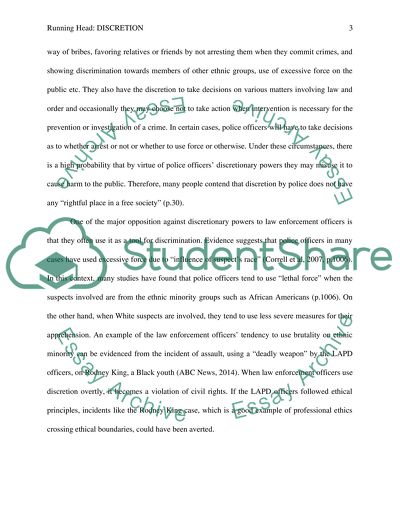Cite this document
(“Discretion And The Criminal Justice Professionals Research Paper”, n.d.)
Discretion And The Criminal Justice Professionals Research Paper. Retrieved from https://studentshare.org/law/1664686-discretion-and-the-criminal-justice-professionals
Discretion And The Criminal Justice Professionals Research Paper. Retrieved from https://studentshare.org/law/1664686-discretion-and-the-criminal-justice-professionals
(Discretion And The Criminal Justice Professionals Research Paper)
Discretion And The Criminal Justice Professionals Research Paper. https://studentshare.org/law/1664686-discretion-and-the-criminal-justice-professionals.
Discretion And The Criminal Justice Professionals Research Paper. https://studentshare.org/law/1664686-discretion-and-the-criminal-justice-professionals.
“Discretion And The Criminal Justice Professionals Research Paper”, n.d. https://studentshare.org/law/1664686-discretion-and-the-criminal-justice-professionals.


